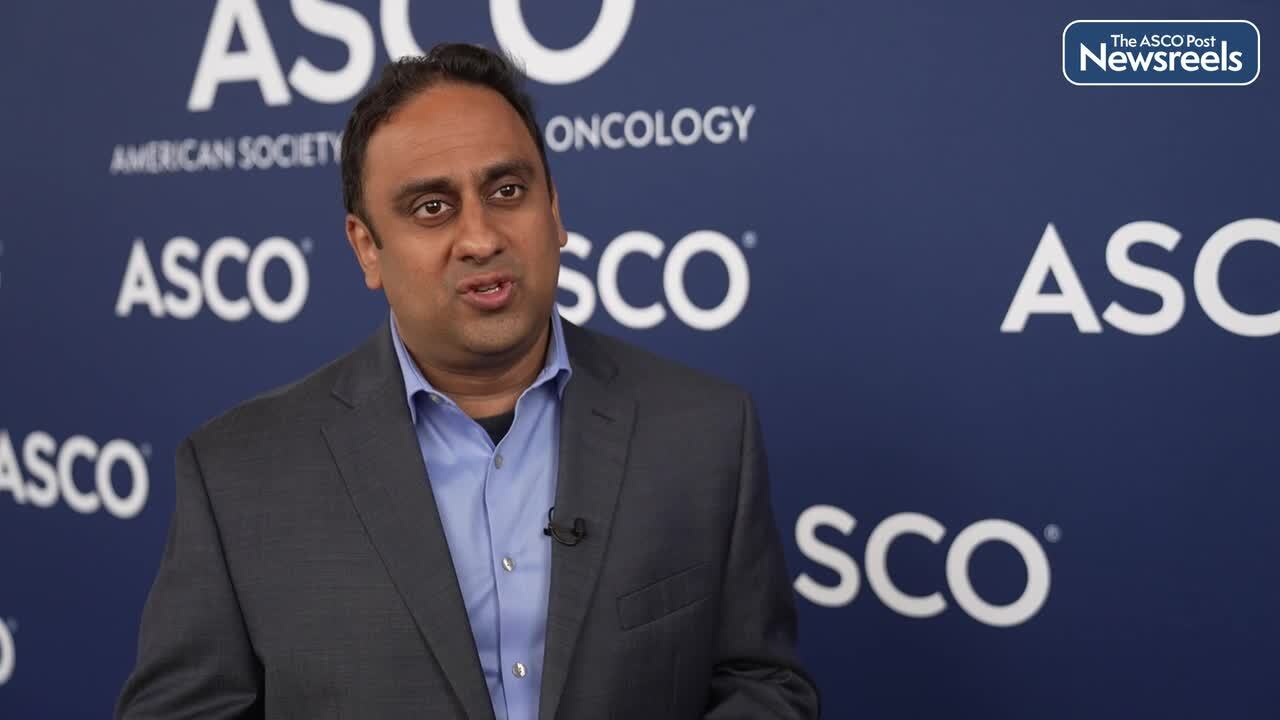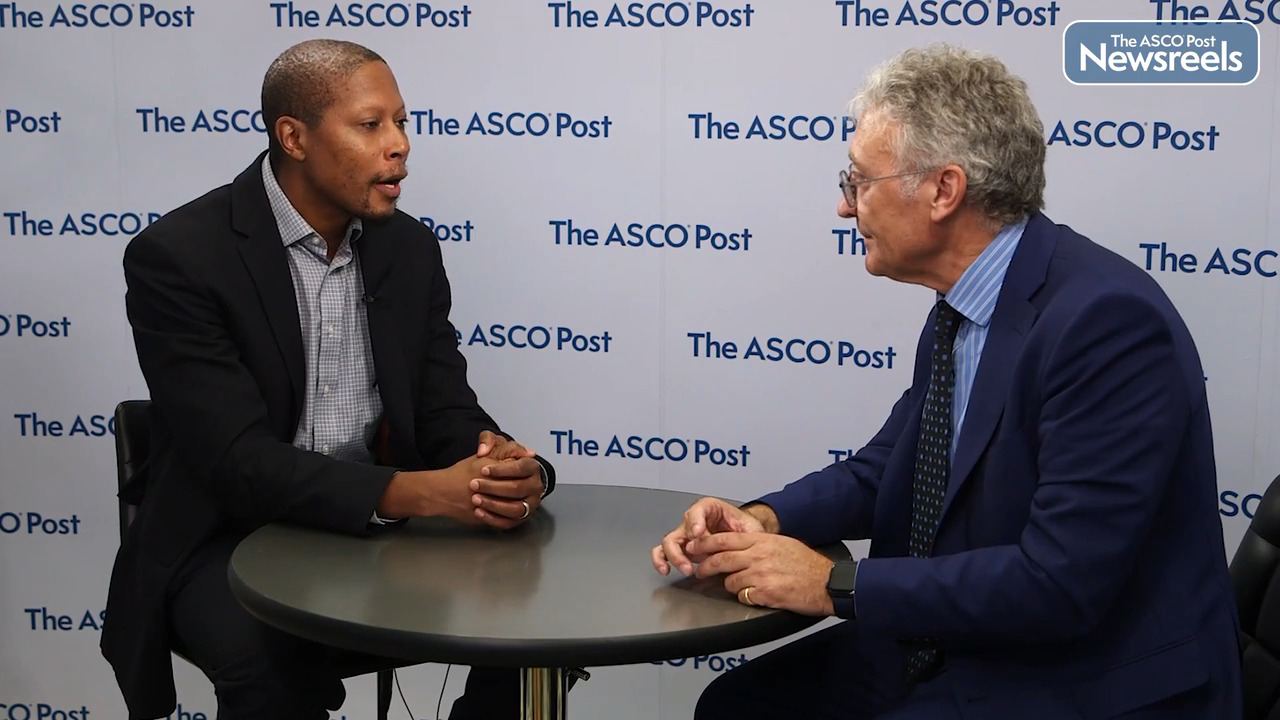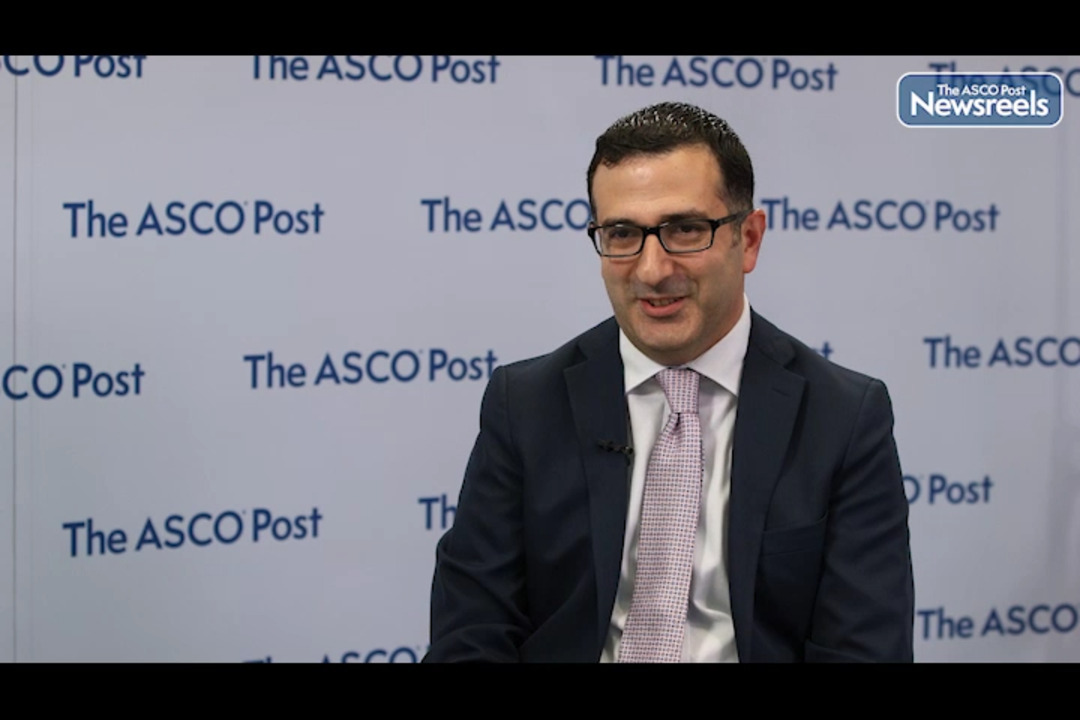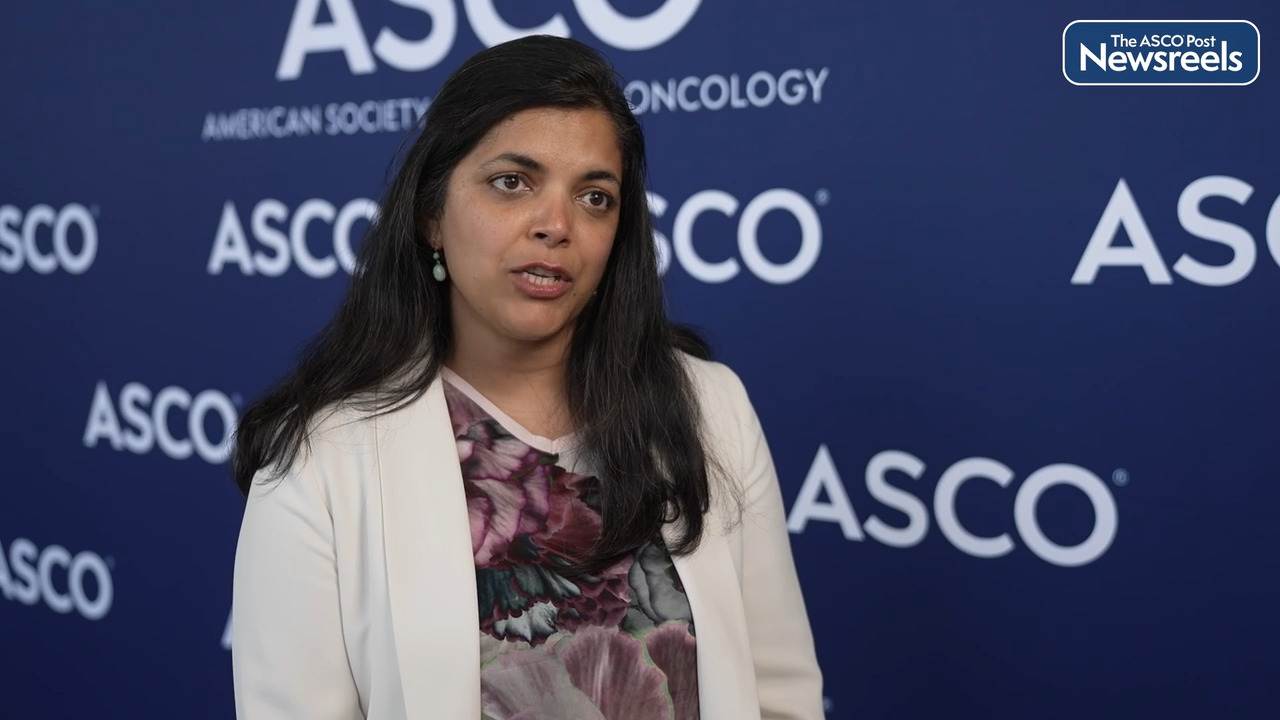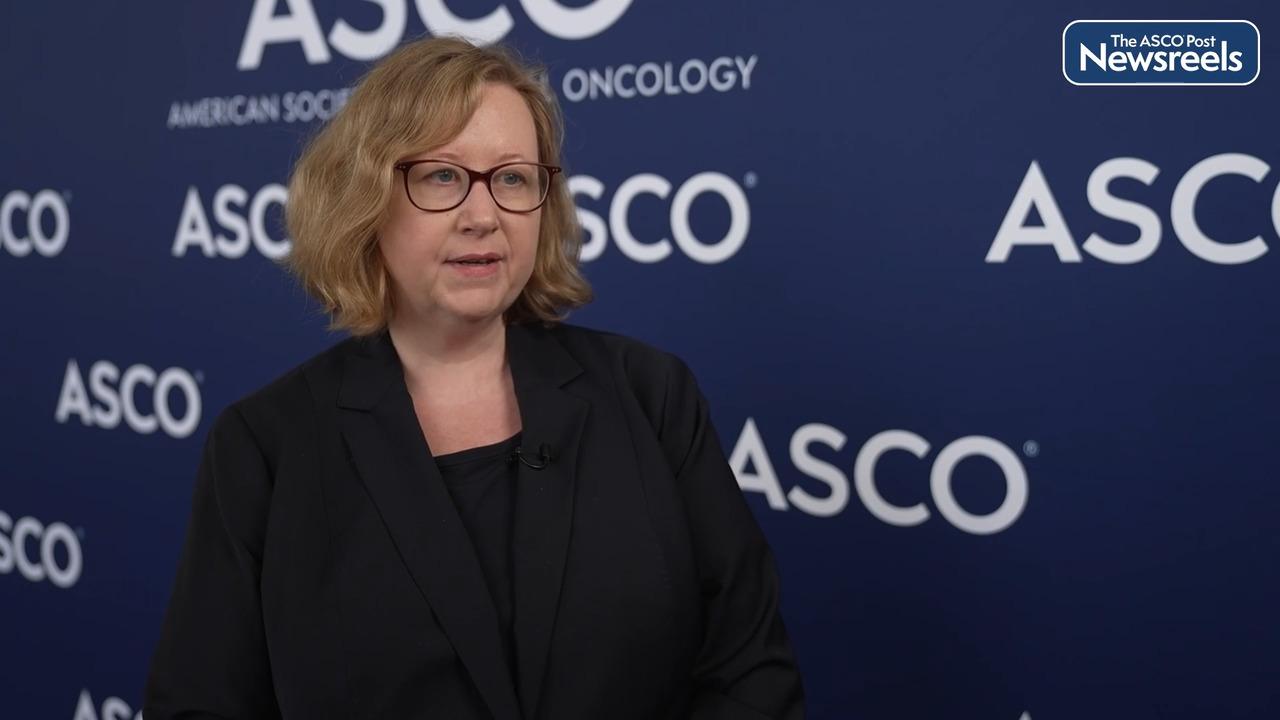Transcript
Disclaimer: This video transcript has not been proofread or edited and may contain errors.
In the session today we were discussing the future of pediatric leukemias at the ASCO meeting, and I was able to discuss abstracts from three different investigative teams.
The first abstract was by Dr. Cheng and his colleagues presenting on genomic analyses of children with standard-risk B-cell ALL and high-risk B-cell ALL harboring favorable genetic alterations such ETV6/RUNX1 fusions or hyperdiploidy with double trisomies of chromosomes 4 and 10. And these are patient populations that generally do quite well with conventional chemotherapy, but yet some of these patients relapse, and at this point we really don't know why.
So in this Cancer Moonshot initiative work, the investigators were assessing different genomic determinants of outcomes that contributed to relapse in these otherwise good-risk children. And they identified some genetic features that I think we know from patients with high-risk disease, such as those with Ph-like kinase fusions or transcription factor deletions in Ikaros or PAX5 that contribute to high risks of relapse, as well as CREBBP mutations that we know can be associated with thiopurine chemotherapy resistance. And so those, I think, were confirmatory and nice validation findings.
But I think the important part of this study was that the investigators really discovered new genetic alterations associated with relapse that we hadn't known about before, both in the children with standard risk ALL, as well as in those with high-risk disease, with generally favorable outcomes. They identified different patterns of chromosomal trisomies and disomies that we know can be protective against relapse, and then other patterns that were more predictive of relapse. And I think importantly, some of the most important take home messages from their study were that they identified new INO80 alterations as well as PAX5 alterations that seem to be associated with the highest risk of relapse in these children.
So I think that these are really important findings at a genetic level to help us understand why children who we wouldn't normally expect to relapse go on to relapse. And we certainly know that these patients have been enriched in our first relapse studies, such as the Children's Oncology Group AALL 1331 clinical trial that was published a couple of years ago. And I think this really helps us to extend that biologic knowledge about some of these causative factors. I think what remains to be done, and now what I hope this group will help us to do next, is to really understand are there ways that we can intervene for these patients upfront that might help to mitigate or prevent this relapse risk that we've now discovered through these studies?
And then in the second abstract, this is a study performed by Dr. McNeer and Dr. O'Brien through our Children's Oncology Group, this is a phase III clinical trial called AALL 1732. This is a randomized, phase III clinical trial in which children either receive standard of care chemotherapy for high-risk B-ALL, or the same chemotherapy backbone with intercalated blocks of inotuzumab, which is a CD22 antibody drug conjugate.
The safety phase in the first part of this study was reported at ASH in 2021, and the data presented at the ASCO meeting were from the second safety phase. Because this medication has been very effective in patients with relapse, we've been very interested in getting this forward to patients with frontline disease. And so in the first safety phase, we learned a lot about intercalation of inotuzumab into chemotherapy for this high-risk patient population. And we learned that there were additional dose modifications of the inotuzumab and additional supportive care measures that needed to be implemented. And so the second safety phase today is really helping us to understand if these dose modifications and increased supportive care were effective.
And so what Dr. McNeer presented at this meeting was that additional toxicities were seen, despite these dose modifications and the increased supportive care. And the data from this safety phase is that the inotuzumab probably needs to be dose-reduced a bit further. And importantly, we also probably need to take out some of the more myelosuppressive blocks of chemotherapy, such as the second half of delayed intensification that we know is really associated with increased myelosuppression and in this study, toxicity.
Some of the side effects and adverse events that they saw in the second safety phase included things that we already knew, like veno-occlusive disease or sinusoidal obstructive syndrome in terms of the known hepatotoxicity risk of inotuzumab. We also saw that there were increased risks of infection in patients treated in arm B with chemotherapy and inotuzumab, and this has prompted some of the additional recommendations for further dose modifications in the rest of this clinical trial that is now ongoing.
And then the third abstract at this meeting that I discussed was by Dr. Panissi and colleagues. This was looking at a next generation tyrosine kinase inhibitor called bosutinib. This is a first-in-child clinical trial in a phase I and phase II setting for children who have chronic myeloid leukemia, or CML, in the chronic phase. We certainly know that these are children that are very curable, but it does come at cost. These children require years of tyrosine kinase inhibitor therapies. We know that some of the earlier generations of TKIs can be associated with significant side effects that leads to intolerance or toxicity, and sometimes these children benefit from switching to a different TKI. Sometimes these patients also have problems with resistance mutations that develop over time with some of the first generation TKIs. And so there's significant interest, I think, as we've learned from our adult colleagues about looking at some of the next generation TKIs such as the bosuntinib specifically in this population.
So Dr. Panissi presented the safety phase and the dose finding of the bosuntinib also at the ASH 2021 meeting, and they identified in that part of the study the recommended phase II dose of the bosuntinib in children with chronic phase CML that were newly diagnosed, as well as for children who were resistant and/or intolerant to prior TKI therapies. And these were two different dose levels, either 300 or 400 milligrams per meter square daily, respectively.
And so in the study at ASCO, they're now presenting the part two or the phase II component of the bosuntinib study, specifically in the children with newly diagnosed chronic phase CML. In this part, there were 27 patients that were treated. They saw excellent clinical activity of bosuntinib, with very high rates of complete cytogenic responses, major molecular remissions, and event-free survival. What is attractive about bosutinib, specifically in children to study, is we think that it may have less musculoskeletal toxicity. We know that children treated with TKIs over time really have decreased growth velocity, and this is particularly prominent in children with imatinib or dasatinib treatment, where they need growth hormone supplementation often for many years around the time of puberty. And so bosutinib has been of high interest to us in the pediatric oncology community with the potential that it may have fewer deleterious effects on how children are growing in this time period.
For the phase II part of this study for the data that were presented at ASCO, we don't yet know the answer to that. We certainly know a little bit more about the safety and the toxicity profile of the bosutinib. The patients had rates of thrombocytopenia that were fairly significant, with about half of children having grade 3 or grade 4 thrombocytopenia. One of the kind of unique characteristics of the bosutinib is it is associated with more gastrointestinal toxicity. So in this study, about half of children also had nausea, vomiting, or diarrhea, although it tended to be lower grade, more grade 1 and 2. So the safety and the tolerability of this agent certainly seems to be very reasonable in the pediatric population. Whether this will have favorable effects in terms of children's growth, I think remains to be seen.
And I'm very hopeful that Dr. Panissi and his team will be able to report back to us in the coming years a little bit more about this potentially very favorable outcome, as well as the data from the phase II part of testing bosutinib in children with resistant or intolerant disease that is also another cohort in this study.
